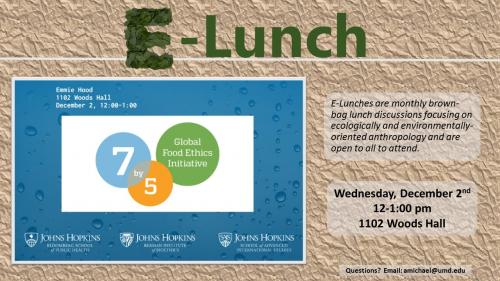7 by 5: Global Food Ethics Initiative
Emmie Hood, Johns Hopkins Bloomberg School of Public Health/JH Berman Institute of Bioethics/JH School of Advanced International Studies
With the world’s population likely to exceed 9.5 billion by 2050, the global community faces an enormous challenge — how to ensure everyone will have enough nutritious and safe food to secure a desirable level of health.
Ensuring that every individual has affordable access to sufficient and nutritious food is a profoundly important and consensual moral imperative. However, while there is no debate about the moral imperative to feed the world, there are contested visions of what it means to feed the world ethically. Disagreements exist about what values, beyond human health, should be taken into account, what trade-offs (if any) between values are justifiable in the short- and long-term, and what systems and strategies for the production, distribution, marketing, selling, and consumption of food are ethically acceptable.
The challenge for ethically acceptable global food security is to find a path forward, where tangible progress on ethical issues and disagreements in global food policy and practice is possible even in the absence of consensus about relevant values and permissible means.



